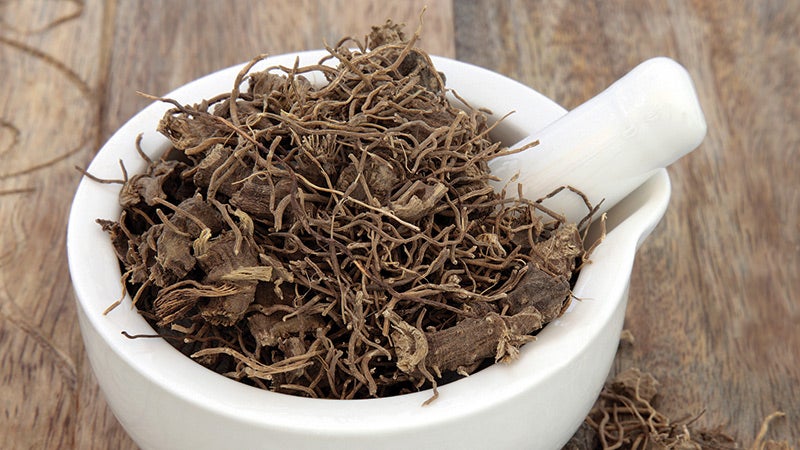Supplement Smarts: Black Cohosh for Menopause Symptoms

Used for years to treat menopause symptoms, this plant has proven beneficial in new studies.
The herb black cohosh is a viable natural treatment for hot flashes and other symptoms of menopause. Also called Actaea racemosa or Cimicifuga racemosa, this buttercup-related perennial is native to North America, and it was Native Americans who discovered its value more than two hundred years ago. While the National Institutes of Health cautiously calls research on black cohosh “encouraging,” the plant has been used in Europe for decades to treat premenstrual, menstrual, and menopausal discomfort. And, according to the University of Maryland Medical Center (UMMC), it has been embraced as a “safe and effective alternative for women who cannot or will not take hormonal replacement therapy for menopause.”
Power Source » Studies have found that black cohosh may improve symptoms of menopause, including hot flashes, night sweats, irritability, anxiety, sleep disturbance, and vaginal dryness. A 2010 review found a 26 percent decrease in hot flashes and night sweats. How does the herb work? Nobody quite knows, though chemicals in black cohosh may have effects similar to estrogen and serotonin.
Use It Right » There is no “official” dose for black cohosh. The handbook British Herbal Compendium suggests a range of 40 to 200 milligrams per day, though traditional doses may be 1 gram or more. Commercial products often standardize extracts to their level of triterpene glycosides, a bioactive phytochemical in the plant; there should be at least
1 milligram per tablet, recommends the UMMC.
Watch Out For » Millions of people have taken black cohosh without adverse effects, though long-term safety is only now being investigated. Consult your doctor before taking black cohosh, particularly if you are pregnant or have liver problems or estrogen-sensitive conditions. Headache and stomach upset have been reported. While interactions with medications are rare, it’s possible that the herb may increase anticoagulant and hypotensive activity.